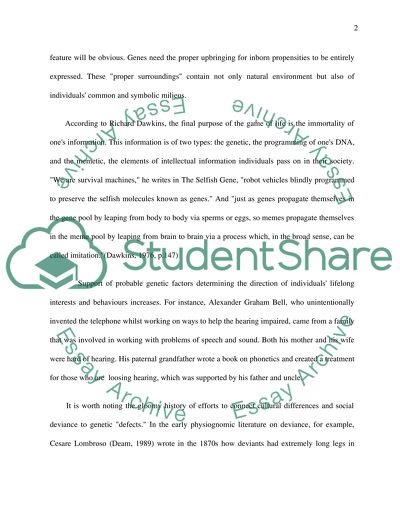Cite this document
(“Nature vs. nurture Essay Example | Topics and Well Written Essays - 1500 words”, n.d.)
Retrieved from https://studentshare.org/miscellaneous/1500672-nature-vs-nurture
Retrieved from https://studentshare.org/miscellaneous/1500672-nature-vs-nurture
(Nature Vs. Nurture Essay Example | Topics and Well Written Essays - 1500 Words)
https://studentshare.org/miscellaneous/1500672-nature-vs-nurture.
https://studentshare.org/miscellaneous/1500672-nature-vs-nurture.
“Nature Vs. Nurture Essay Example | Topics and Well Written Essays - 1500 Words”, n.d. https://studentshare.org/miscellaneous/1500672-nature-vs-nurture.


